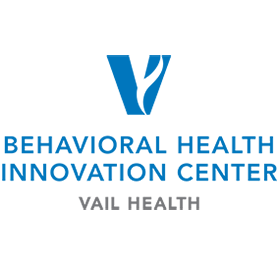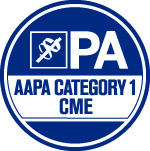
Novel Approaches to Behavioral Health Innovation: Challenging Yourself with Thermal Stress to Improve Health and Well-Being -Enduring

Intentional exposure to both heat and cold can have remarkable health benefits. Heat exposure, like that experienced in saunas or hot baths, mimics the effects of moderate aerobic exercise, promoting cardiovascular and neurological health. Moreover, it stimulates stress response genes, such as heat shock proteins, which prevent muscle atrophy and decrease protein aggregation, thereby protecting our cells. On the other hand, deliberate cold exposure boosts norepinephrine levels, enhancing mood and triggering mitochondrial biogenesis in adipose tissue - a process that increases the amount of calorie-burning brown fat. Furthermore, immersing oneself in cold water elevates mitochondrial biogenesis within muscle tissue, thereby improving muscle function. Through these contrasting yet beneficial processes, heat and cold exposure offer unique ways to bolster overall health and well-being.
Elements of Competence
This educational activity is designed to change learner competence and focuses on the following competency areas:
- The American Board of Medical Specialties: Patient care and procedural skills, Medical knowledge
- Nursing: Employ evidence-based practice
- Center for the Advancement or Pharmacy Education: Health and wellness, Interprofessional collaboration, Learner, Patient-centered care
- Pharmacy Technician Certification Board: Pharmacology
- Interprofessional Education Collaborative: Interprofessional Communication
- Diversity, Equity, and Inclusion: Engage in self-reflection, Value diversity in the clinical encounter
Intended Audience
This activity is designed for Psychologists, Pharmacists and Pharmacy Technicians, Physicians, Nurses, Physician Assistants, Social Workers, and other behavioral health clinicians.
Learning Objectives
As a result of participation in this educational series, members of the healthcare team will be able to:
- Define the mechanisms through which deliberate heat exposure, such as sauna use or hot baths, mimics moderate aerobic exercise, enhancing cardiovascular and neurological health and activating stress response genes for muscle protection.
- Identify the role of deliberate cold exposure in increasing norepinephrine levels, thereby improving mood and inducing mitochondrial biogenesis in adipose tissue to increase brown fat.
- Describe how cold water immersion triggers mitochondrial biogenesis in muscle tissue, improving muscle function.
Policy on Faculty and Sponsor Disclosure
It is the policy of the University of Wisconsin–Madison Interprofessional Continuing Education Partnership (ICEP) to identify, mitigate and disclose all relevant financial relationships with ineligible companies* held by the speakers/presenters, authors, planners, and other persons who may influence the content of this accredited continuing education (CE). In addition, speakers, presenters and authors must disclose any planned discussion of unlabeled/unapproved uses of drugs or devices during their presentation. For this accredited continuing education activity all relevant financial relationships have been mitigated and detailed disclosures are listed below.
*Ineligible companies are those whose primary business is producing, marketing, selling, re-selling, or distributing healthcare products used by, or on, patients. The ACCME does not consider providers of clinical services directly to patients to be ineligible companies.
Name | Role | Financial Relationship Disclosures | Discussion of Unlabeled/Unapproved uses of drugs/devices in presentation? |
| Casey Wolfington, PhD | Clinical Director/ Planning Committee Chair | No relevant relationships with ineligible companies to disclose | No |
Marshall Thomas, MD | Planner | No relevant relationships with ineligible companies to disclose | No |
Angelia Dreher, PharmD | Planner | No relevant relationships with ineligible companies to disclose | No |
Whitney Georges, RN | Planner | No relevant relationships with ineligible companies to disclose | No |
Tracey Branch, MSW | Planner | No relevant relationships with ineligible companies to disclose | No |
Robert Brown, CPhT | Planner | No relevant relationships with ineligible companies to disclose | No |
Charles Raison, MD | Planner | Otsuka America Pharmaceutical (Independent Contractor - Consultant), | No |
Tania Engle, PA | Planner | No relevant relationships with ineligible companies to disclose | No |
| Rhonda Patrick, PhD | Presenter | No relevant relationships with ineligible companies to disclose | Yes |
 | In support of improving patient care, this activity has been planned and implemented by the University of Wisconsin–Madison ICEP and Vail Health. The University of Wisconsin–Madison ICEP is jointly accredited by the Accreditation Council for Continuing Medical Education (ACCME), the Accreditation Council for Pharmacy Education (ACPE), and the American Nurses Credentialing Center (ANCC), to provide continuing education for the healthcare team. |
Credit Designation Statements
American Medical Association (AMA)
The University of Wisconsin–Madison ICEP designates this enduring material for a maximum of 1 AMA PRA Category 1 Credits™. Physicians should claim only the credit commensurate with the extent of their participation in the activity.
American Nurses Credentialing Center (ANCC)
The University of Wisconsin–Madison ICEP designates this enduring material for a maximum of 1 ANCC hours.
Accreditation Council for Pharmacy Education (ACPE)
The University of Wisconsin–Madison ICEP designates this knowledge-based activity for 1 hours or 0.1 CEUs. Credit can be earned by successfully completing the activity, assessment and evaluation. Credit will be provided to NABP CPE Monitor within 60 days after the activity completion.
UAN:
Pharmacist: JA0000358-9999-23-051-H99-P
Pharmacy Technician: JA0000358-9999-23-051-H99-T
Association of Social Work Boards (ASWB)
 | As a Jointly Accredited Organization, the University of Wisconsin–Madison Interprofessional Continuing Education Partnership (ICEP) is approved to offer social work continuing education by the Association of Social Work Boards (ASWB) Approved Continuing Education (ACE) program. Organizations, not individual courses, are approved under this program. Regulatory boards are the final authority on courses accepted for continuing education credit. Social workers completing this course receive 1.0 general, enduring continuing education credits. |
American Psychological Association (APA)
 | Continuing Education (CE) credits for psychologists are provided through the co-sponsorship of the American Psychological Association (APA) Office of Continuing Education in Psychology (CEP). The APA CEP Office maintains responsibly for the content of the programs. |
American Association of Physician Assistants (AAPA)
 | The University of Wisconsin–Madison ICEP has been authorized by the American Academy of PAs (AAPA) to award AAPA Category 1 CME credit for activities planned in accordance with AAPA CME Criteria. This activity is designated for 1.0 AAPA Category 1 CME credits. Approval is valid until 8/15/2025. PAs should only claim credit commensurate with the extent of their participation. |
Continuing Education Units
The University of Wisconsin–Madison ICEP, as a member of the University Professional & Continuing Education Association (UPCEA), authorizes this program for 0.1 continuing education units (CEUs) or 1 hours.
Available Credit
- 1.00 AAPA Category 1 CME
- 1.00 ACPE Contact Hours - Pharmacist
- 1.00 ACPE Contact Hours - Pharmacist Technician
- 1.00 AMA PRA Category 1 Credit™
- 1.00 ANCC Contact Hours
- 1.00 APA CE Credits
- 1.00 University of Wisconsin–Madison Continuing Education Hours
- 1.00 Approved for AMA PRA Category 1 Credit™
Click BEGIN to register
Registration for this activity can only be completed through the ICEP Learning Portal. Attendee registrations made through any other sites cannot be honored. UW-Madison ICEP is not able to refund fees paid through unaffiliated registration sites, such as eMedEvents.com, MedConfWorld.com, EventEgg.com, and 10times.com. Please report any unauthorized websites or solicitations for registrations to [email protected].
Accessibility
If you need anything to participate in this program, please contact [email protected].
Questions
For questions about registration, please email [email protected]. For general questions about this series, please contact Pam French at [email protected]
Required Hardware/software
Free, current version of Chrome, Firefox, Safari, or Microsoft Edge. Some older browsers and Internet Explorer could produce error messages or not display the content correctly.

 Facebook
Facebook X
X LinkedIn
LinkedIn Forward
Forward